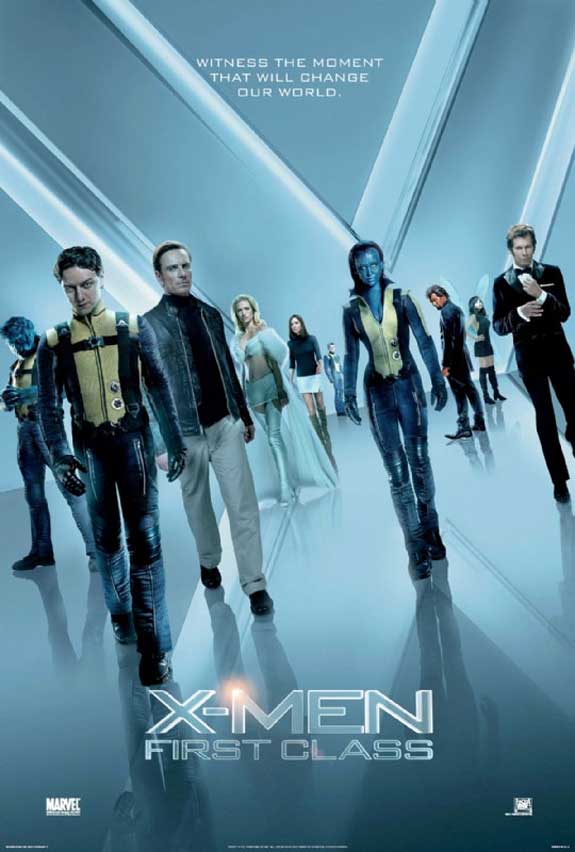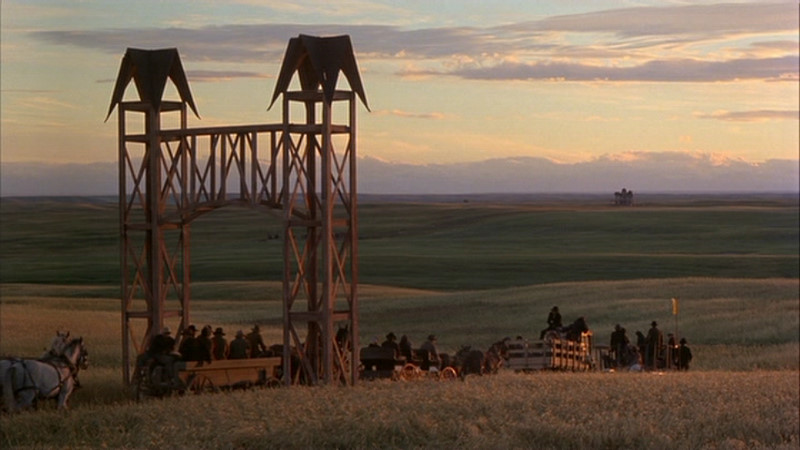
I have an interesting viewing relationship with Harry Potter and The Prisoner of Azkaban, the third entry in the now complete 8 Harry Potter film franchise. The first two Chris Columbus directed Potter films were close to my heart so it was quite jarring to see the new visual and tonal approach brought to the series by director Alfonso Cuaron, who had directed the critically acclaimed Y Tu Mama Tambien. There was also the feeling the film was much smaller than the first two films, both in scale and in length; Prisoner of Azkaban ends just as the previous two were getting in to their final acts. I enjoyed the film but as I said, it was jarring. As time went on I realized how much critics liked to use the third film to bash Chris Columbus' first two as being too faithfiul, too uncinematic, and not very magical. While I understand the criticisms and they certaintley have some validity to them, they made me slightly mad against the third film. Ironically enough, the film I was the most jarred by when seeing it for the first time has now become my favourite film in the series. This is a beautifully visualized, extremely poignant, and ultimately very nimble and brisk film that works as a stand alone entry while adding to the Harry Potter mythos.
The plot of the film deals with the now 13 year old wizard Harry Potter (Daniel Radcliffe), entering his third year at Hogwarts School of Witchcraft and Wizardy with his friends Ron Weasley (Rupert Grint) and Hermoine Granger (Emma Watson). After blowing up his visiting Aunt Marge to a human balloon, in what is probably the best opener of the series, Harry gets a ride on the Knight Bus, a multiple decker purple bus invisible to muggles (non magic folk). Harry learns that Sirius Black (Gary Oldman), a known murderer and supporter of Lord Voldemort, has escaped from Azkaban prison.
This film, like most of the Harry Potter books and films, is essentially a mystery. Nevertheless, while the first two films seemed more plot driven, this film seems more character driven. Certainly the main trio is the central relationship of this series and we see subtle hints of Ron and Hermione's eventual romance as well as Hermoine's ingenuity involving a time turner; though Ron and Hermione are important to the film, I they are slightly in the background for this chapter, particularly Ron. This is understandable because the heart of this film is the relationship between Harry and the new Defense Against the Dark Arts teacher Remus Lupin (David Thewliss), who helps Harry defend himself against dementors, the guards of Azkaban who are after Sirius Black but who affect anyone who gets in their way by feeding off a person's happiness. They affect Harry most of all because as Lupin tells him, his horrible childhood makes him more vulnerable to their power.
Lupin not only helps Harry defend himself, he also shares his relationship with Harry's late parents, James and Lilly. The scene between Lupin and Harry on a bridge, which I believe is done in one shot, where Lupin tells Harry about Lily helping him during dark times, and James' knack for trouble, like Harry himself, and Harry can only smile, is one of the most emotionally affecting scenes in the entire series. It captures how Harry, despite never knowing his parents, can still find joy in hearing about them, being reminded they did live and have friends such as Lupin. This is further emphasized in the scene where Harry has to conjure up a happy memory to protect himself against a dementor and he picks a memory of his parents just talking to him. He doesn't know if it's real but as Harry says, it's the best he's got. This observation is both emotionally uplifting because, as I mentioned earlier, the thought of his parents can still bring him joy, but also quite sad because he doesn't even know if it's a real experience. Sometimes the most powerful memories and emotions we have come from our own minds.
Lupin of course is not the only father figure in this film. Harry learns that Sirius is his godfather and is lead to believe he betrayed his parents, Sirius' friends, to Voldemort. By the end though, Harry realizes Sirius was framed and escaped from Azkaban to kill the real traitor, Peter Pettrigrew (Timothy Spall), who has disguised as Ron's rat Scabbers. While Harry and Sirius don't have a lot of screen time, like Harry's scenes with Lupin, they provide a genuine emotional poignance to the dazzling wizardy and capture Harry's yearning for a sense of family, an important thematic thread through all the novels.
The film is beautifully visualized and I think that's saying something considering the visual wonder of this universe. While Columbus brought a lot of charm and whimsy to the first two films, he didn't bring much visual style to the proceedings, which is not a knock, just an observation. Cuaron is more of a visual stylist than Columbus and one of the joys of this film is seeing how wonderfully he stages many pivotal and smaller moments in the film. The scene where the dementors come on the Hogwarts Express is one the scariest sequences in the entire series and is a good example of how this film, moreso than even Harry Potter and The Chamber of Secrets, plays almost like a horror film. The scene where Mr. Weasley warns Harry of Sirius being after Harry, is another good example of a horror film aesthetics. Mr. Weasley talks to Harry in the shadows of The Leaky Cauldron pub, with wanted posters of Sirius on the walls, and John Williams' score creeps in ever so slightly. This scene between the two manages both to be creepy and fun. I also like the old school iris in/out effect Cuaron uses to begin and end scenes. The Quidditch scene, taking place in the rain, is thrillingly staged and I love how we're shoved in to the action without any lead up. Unfortunately, it almost seems like Cuaron made himself the star of the film, or at least critics made him the star. Still, while Cuaron indulges in the visual element of the film, I don't feel he is a self indulgent director; I also remember an interview with Cuaron where he disagreed with a critic who said this film was the first to capture the spirit of the books.
Acting wise, by this time in the franchise the three main actors had really grown in to their roles. Radcliffe handles the emotional moments between him and Lupin very well. Watson captures the lovable know-it-all that Hermione is and Grint nails Ron's throwaway comedic moments, such as his nightmare about spiders making him tap dance. It's funny to hear about hard it was to direct them in the first two films and even Radcliffe admits what he was doing in the first film wasn't really acting. I've always liked these three young actors, I've grown up with them over the last decade. The older cast members, as always, deliver great support. Alan Rickman is hilariously creepy as Professor Snape and Michael Gambon, replacing the late Richard Harris as Professor Dumbledore, is both whimsical and grounded. Thewliss is naturally sympathetic and likable as Lupin, providing a sense of comfort amongst the darker elements of the film and Oldman conveys the pain and madness of a innocent man being wrongly convicted while slowly revealing a good natured man who cares for his god son. It's just unfortunate that there wasn't more screentime between him and Harry, though the moments they have are quite touching.
The biggest problem for me with this movie is the way in which is plotted. I feel like there's not a proper climax or at least we're shoved in to the climax without any lead up. Then there's the issue of Hermione's time turner. It's a cool plot device and it's delightful to watch all the little things that happened during the "first go around" come together when Harry and Hermione go back in time. I think the problem with the time turner is it's somewhat of a deus ex machina. While it's hinted at throughout the film, it seems too convienent and I don't believe it's ever brought up in the books again and certainly not the films.
Harry Potter and The Prisoner of Azkaban is another part of the puzzle in this series and there's an intimacy which befits it's nature as one piece of a larger series rather than something which feels too epic but doesn't go anywhere. Looking at the films which followed Cuaron's entry one can see how influential his style was on the series, both visually and tonally. Nevertheless, Cuaron's film is one of a kind. This is a wonderful and yes, magical film.


